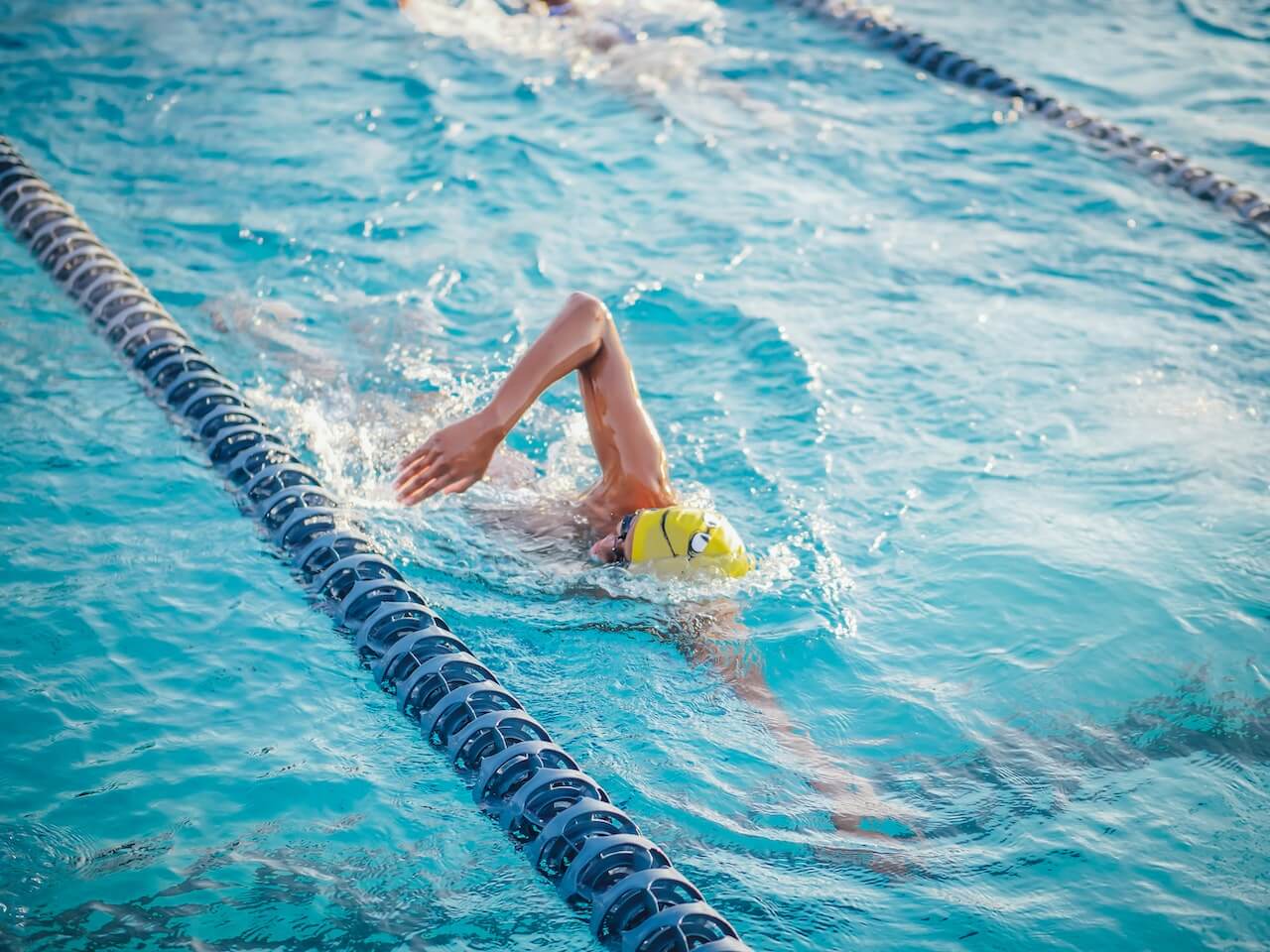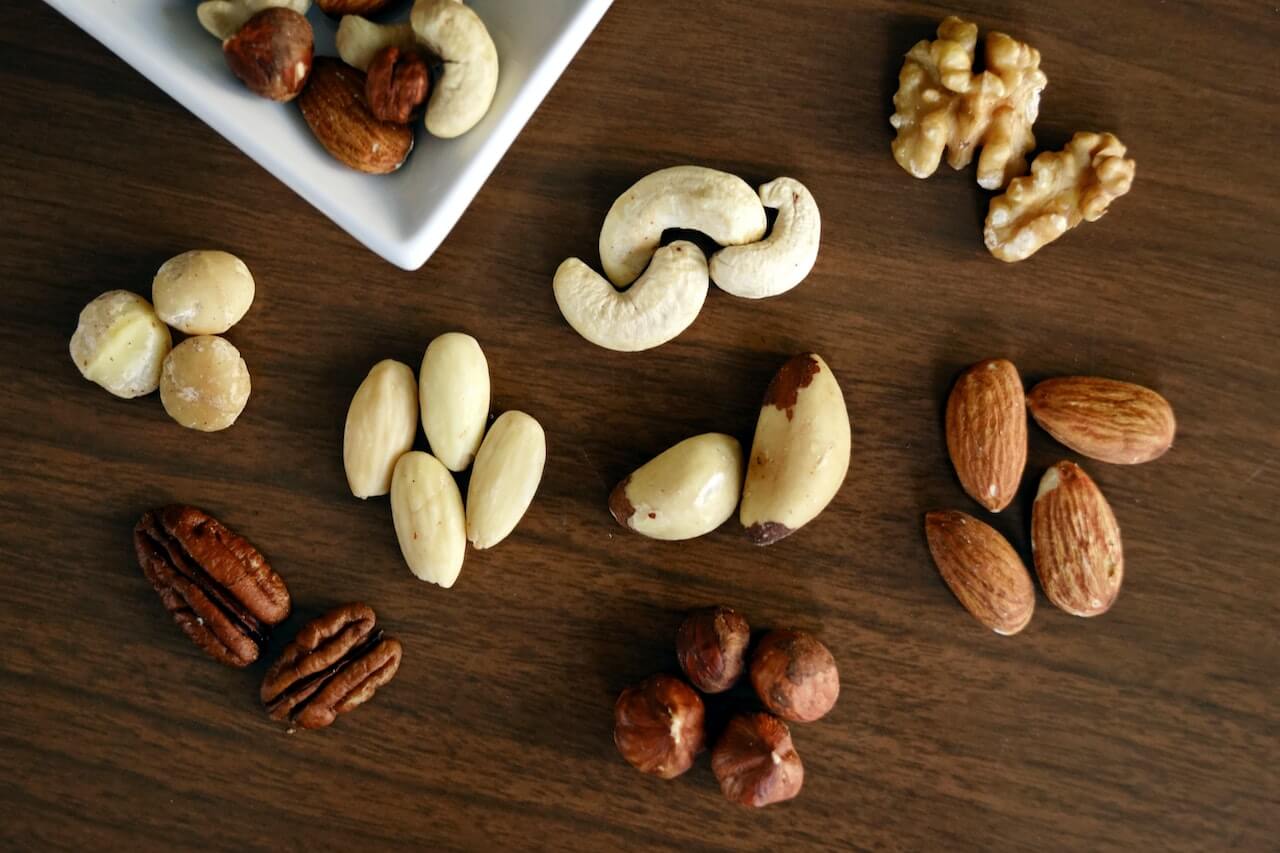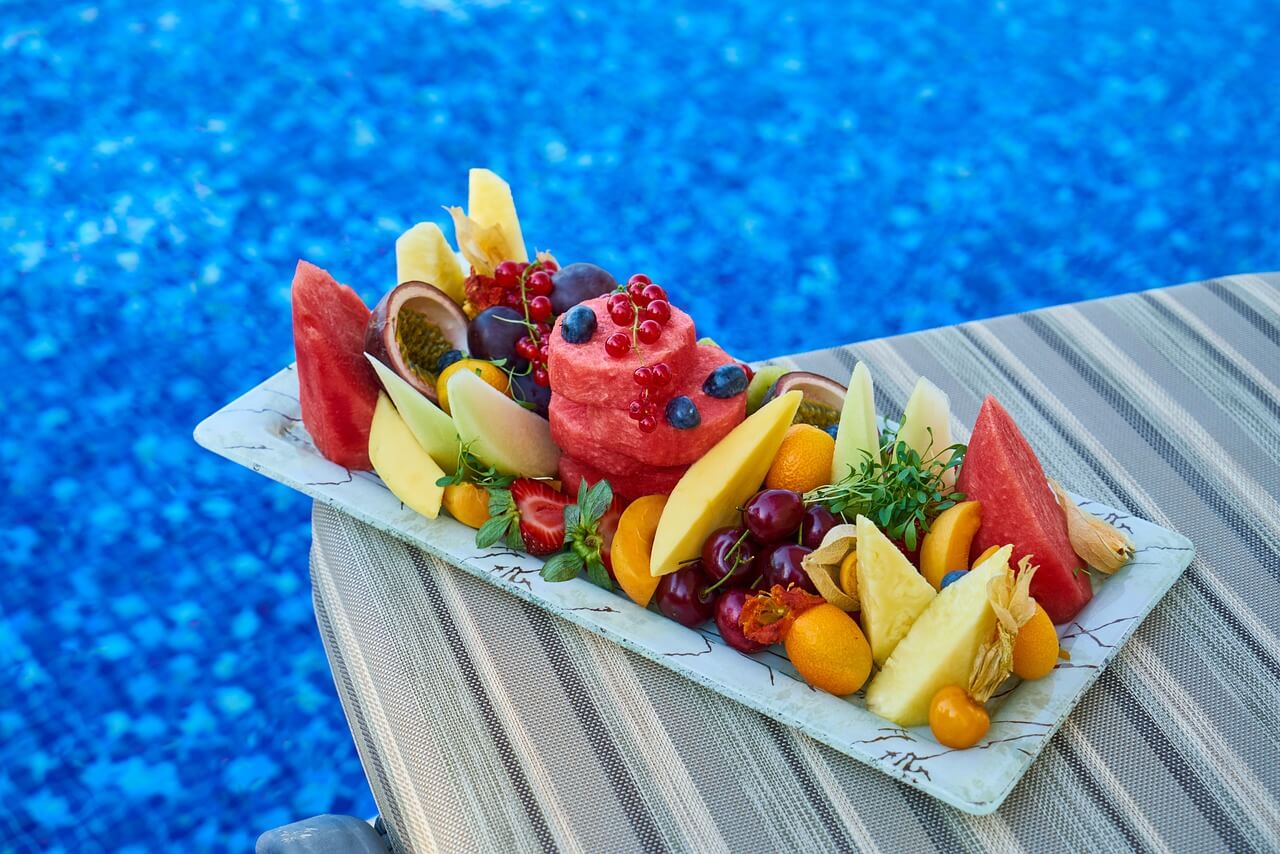Have you ever noticed a surge in hunger after a good swim session? And that, the colder the water is, the hungrier you get after swimming in it?

Swimming makes you hungry due to a combination of thermoregulation, increased energy expenditure, boosted metabolism, and hormonal fluctuations. As your body works to maintain its core temperature and expends energy, it burns calories, leading to increased hunger. Simultaneously, hormones like ghrelin increase, which stimulates appetite, while satiety hormones like leptin may be restricted, further contributing to post-swim hunger.
By understanding these factors, you’ll not only be able to address your post-swim cravings better but also be prepared for your swimming sessions. Learn about them in more detail below.
The Science of Swimming and Hunger
The Body’s Energy Systems During Swimming
When you’re swimming, your body utilizes various energy systems to power your muscles.
Aerobic and anaerobic systems work together to provide the necessary energy for this intense exercise. The anaerobic system is engaged during short, high-intensity bursts, while the aerobic system takes over for longer durations of moderate intensity.
The demand for energy during swimming activates your metabolism, which in turn affects your appetite. In order to maintain a balanced metabolism, your body’s energy stores need to be replenished. This is where hunger comes into play.
Calories Burned During Swimming
Swimming is an effective calorie-burning activity. The number of calories you burn during a swim session depends on factors like your weight, the intensity of your workout, and the duration of your exercise.
For example, a 160-pound individual swimming at a moderate pace can burn around 400 calories per hour.
The temperature of the water also plays a role in this process. When you swim in colder water, your body works harder to maintain its core temperature.
This additional effort increases your calorie burn, which may contribute to the increased sensation of hunger you experience after swimming.
Aside from the calories burned during swimming, the activity also has an appetite-stimulating effect on the body.
Engaging in water-based activities makes you hungrier than other forms of exercise, even if the same amount of calories is burned. This could partially be explained by heat loss in colder water, leading to an increased food intake.
As you continue to swim regularly, your body adapts to the demands of the activity, which may positively impact your weight loss and body fat reduction. However, be aware of your post-swimming hunger and avoid overeating, as this could diminish the benefits of your workout.
Thermoregulation and Energy Expenditure
The Body’s Response to Cold Water

When you dive into cold water for a swim, your body immediately starts working to maintain its core temperature. This process, known as thermoregulation, requires energy in the form of calories.
In order to preserve warmth around vital organs, your body constricts blood vessels near the skin and extremities, simultaneously burning more calories in the process.
As you continue swimming, your muscles expend additional calories to keep you moving, further increasing your hunger levels.
Increased Metabolism During Swimming
Swimming not only requires a considerable amount of energy on its own but also boosts your metabolism. This increased metabolism results in the burning of even more calories, thus making you feel hungrier.
Since swimming often involves full-body movement, you engage a wide range of muscles and expend more energy compared to other activities like cycling or running. You can burn between 250-450 calories per half-hour of swimming, depending on the intensity.
It is believed that swimming in cooler water affects certain hormones in our body, making you feel even more hungry.
This is further compounded when swimming in cold water; the body needs to generate more heat to maintain its core temperature, which means it has to work even harder than if you were doing the same physical activity in a warmer environment.
This increase in metabolism is a major factor contributing to increased hunger levels following a swim.
To keep up with the energy demands of swimming, you must eat sufficient calories to fuel your body. Aim to eat a balance of carbohydrates, proteins, and fats, fulfilling your body’s nutrient requirements.
Hormonal Response
Ghrelin and Hunger
When you swim, your body experiences an increase in energy expenditure. This is because swimming is a full-body workout that engages all major muscle groups, which leads to an increase in calorie consumption.
During this time, your body releases a hormone called ghrelin. Ghrelin is known to stimulate your appetite, making you feel hungry.
Several brain imaging studies have also shown that ghrelin increases blood flow in regions of the brain that are associated with feelings of hunger.
So, after a swim, your body naturally produces more ghrelin to replenish the energy it just used. This increase in ghrelin production, combined with the increased blood flow, leads to the post-swim hunger many swimmers experience.
Leptin and Satiety
Leptin is another hormone that plays a crucial role in controlling your appetite. It is produced in your fat stores and acts as a signal to your brain, telling it that you have enough energy stored and don’t need to eat more.
However, during swimming, your body may perceive a need to store more energy, especially since being submerged in water may trigger a response similar to preparing for winter hibernation in animals.
When you swim in colder water, your blood vessels constrict, which may impact the proper release of leptin.
Without this satiety signal reaching your brain, you might not feel as satisfied after you eat food. As a result, you might end up feeling hungrier after a swim than you would after other forms of exercise.
In addition to ghrelin and leptin, swimming has been shown to trigger the release of other hormones that influence appetite. These hormones may include cortisol and insulin, which further contribute to the increased hunger sensations experienced by swimmers.
So, next time you experience post-swim hunger, keep in mind that it’s a natural response brought on by multiple factors, including hormonal fluctuations. Make sure to refuel with nutrient-dense meals to satisfy your hunger while supporting your body’s recovery and energy needs.
What to Eat After Swimming
Carbohydrates

Carbohydrates are your body’s main source of energy, especially during a swimming workout. Consuming enough carbs before and after your swim helps to replenish your glycogen stores, which fuels your muscles and keeps you from feeling fatigued.
Aim to include complex carbohydrates in your diet, such as whole grains, fruits, and vegetables. Options like oatmeal, toast, or a banana can be a great choice to fuel your swim workouts.
Proteins

Protein is essential for muscle repair and growth. As a swimmer, your muscles work hard during training sessions, and it’s crucial to provide them with the necessary building blocks to recover and get stronger.
Aim for lean protein sources like chicken, turkey, fish, or plant-based alternatives. Including a protein-rich snack after your swim can help jumpstart muscle recovery and keep you from feeling ravenous later on.
Fats

Don’t shy away from healthy fats; they also play a crucial role in your diet as a swimmer. Omega-3 fatty acids found in foods like salmon, avocado, and nuts can help reduce inflammation and promote brain health.
Fat stores also provide a slow-burning energy source for your body during extended workouts. Include moderate amounts of healthy fats in your meals to support optimal performance and overall health.
Micronutrient Requirements

Swimmers not only require macronutrients like carbohydrates, proteins, and fats, but also various micronutrients to support their overall health and performance. These include:
- Vitamins: essential nutrients for various bodily functions, including immunity, energy production, and bone health. Focus on consuming a variety of colorful fruits and vegetables.
- Minerals: important components of your diet that help maintain bone health, regulate blood pressure, and keep your muscles functioning properly. Some key minerals for swimmers include magnesium, calcium, and potassium.
A proper balance of carbohydrates, proteins, fats, and micronutrients is essential for optimal swimming performance and health. By incorporating a variety of nutrient-dense foods into your diet, you can ensure your body has the fuel it needs to tackle those challenging workouts and emerge as a stronger swimmer.
Managing Hunger After Swimming
Recognizing True Hunger Versus Emotional Hunger
Can you differentiate between true hunger and emotional hunger? True hunger is your body’s need for energy, whereas emotional hunger is driven by feelings or stress.
Pay attention to your body and its signals. Are you craving something specific, or do you feel a general sense of hunger? Remember that swimming can raise your metabolism and may cause real hunger.
Timing and Composition of Meals
Planning your meals around your swim workouts can help you manage hunger. Ensure you’re consuming enough calories before swimming to fuel your body, without eating so much that you feel weighed down.
Schedule your post-swim nutrition within 30 minutes of finishing your workout to replenish energy and alleviate hunger. Opt for a balanced meal that includes carbohydrates, proteins, and healthy fats.
Hydration
Dehydration can sometimes be mistaken for hunger, so it’s crucial to properly hydrate before, during, and after your swim.
Cold water temperature can increase calorie burn, causing you to feel hungrier. Drinking enough water will regulate your body temperature and keep energy levels steady.
Sleep
Getting enough sleep is vital for managing hunger and maintaining overall health. Sleep helps regulate hormones that control energy levels and appetite.
Aim for 7-8 hours of sleep each night to keep your body well-rested and less prone to cravings or emotional eating.
As you navigate your swimming journey, make sure to prioritize mindfulness, diet, and habits like hydration and sleep.
This way, you’ll be better equipped to manage hunger, keep blood pressure in check, and fuel your body for optimal performance in the pool, whether you’re training for a swim meet, triathlon, or just swimming for fun.
Sources:
- https://pubmed.ncbi.nlm.nih.gov/15902988/
- https://theconversation.com/swimming-makes-you-hungrier-and-likely-to-eat-more-at-the-next-meal-new-research-141161
- https://www.trainingpeaks.com/blog/why-swimming-makes-you-hungry/
- https://www.discovery.com/science/swimming-really-does-make-you-hungrier-than-other-forms-of-exerc
- https://www.livestrong.com/article/391401-why-do-you-get-hungry-lose-weight-after-swimming/
